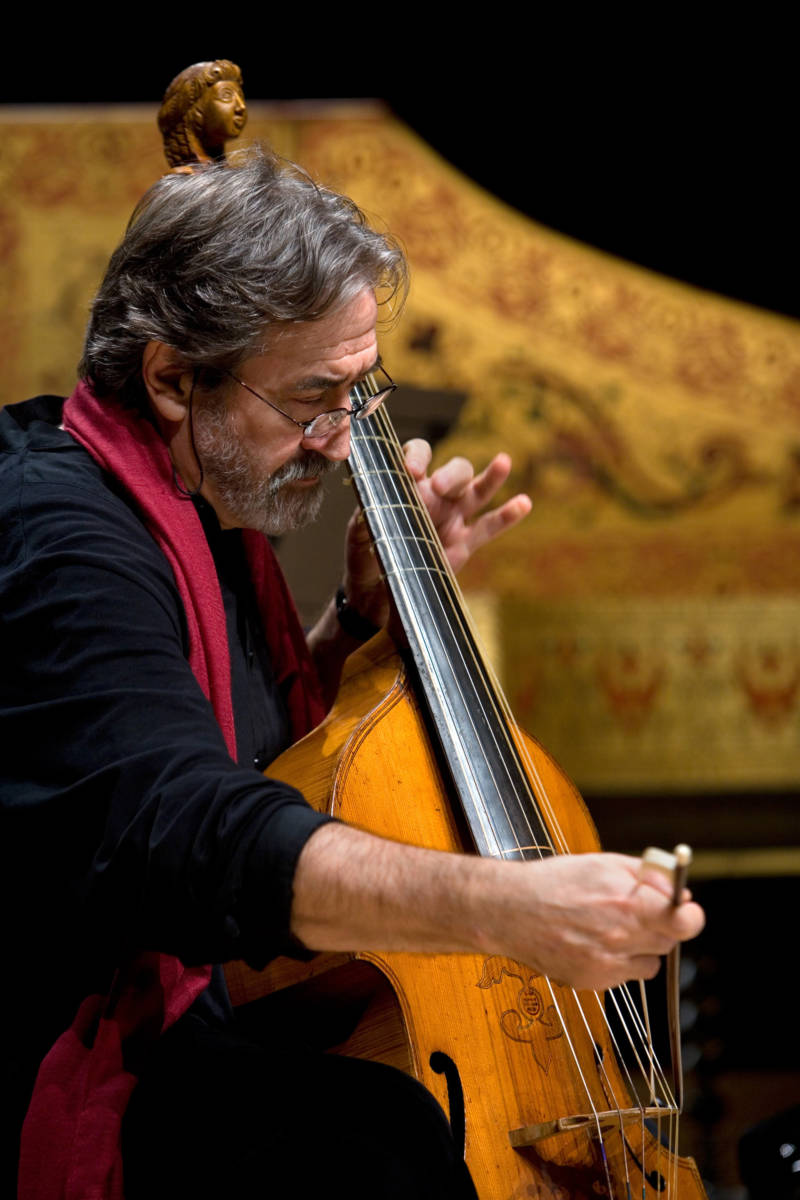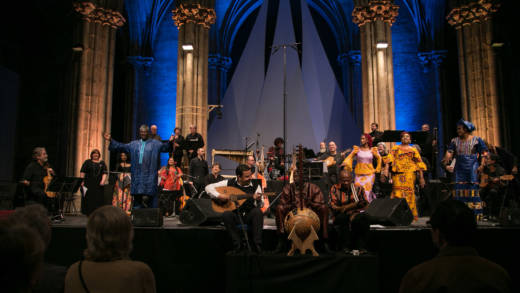There aren’t a lot of early music historians who are also celebrities, but the Catalonian composer and musician Jordi Savall is one of them. He shot onto the international scene in 1991 with his heart-stopping viola da gamba performances in the film Tous les Matins du monde. He has made more than 100 recordings, and his books have been published in eight languages.
Over the breadth of his half-century career, Savall has used his celebrity to draw crowds to hear epic musical adventures into history, sharing the stage with family and talents far beyond his home country of Spain.
With The Routes of Slavery, Savall has been touring the world with a couple dozen musicians, singers, and dancers from four continents, pairing them with local narrators and academics to cover the transatlantic slave trade. The troupe performs at UC Berkeley and at Stanford this weekend, before heading to Seattle and then Austin.
For the purposes of Routes, Savall sets his boundaries thusly: 1444, when the Portuguese began trading slaves, and 1888, when Brazil became the last Western country to abolish slavery. During that time, tens of millions of people were forcibly shipped from Africa to the Americas. (Estimates vary, depending on whether you account for those who died en route.)

“This was the primary economic engine of the world economy for centuries,” says US history professor Jim Campbell, who will be part of the pre-show talk at Bing Concert Hall on Sunday. “It’s hard to imagine any history that we in the West have managed or contrived to forget and evade more thoroughly. Most Americans have no clue of the scope, duration and historical significance of the transatlantic slave trade.”


